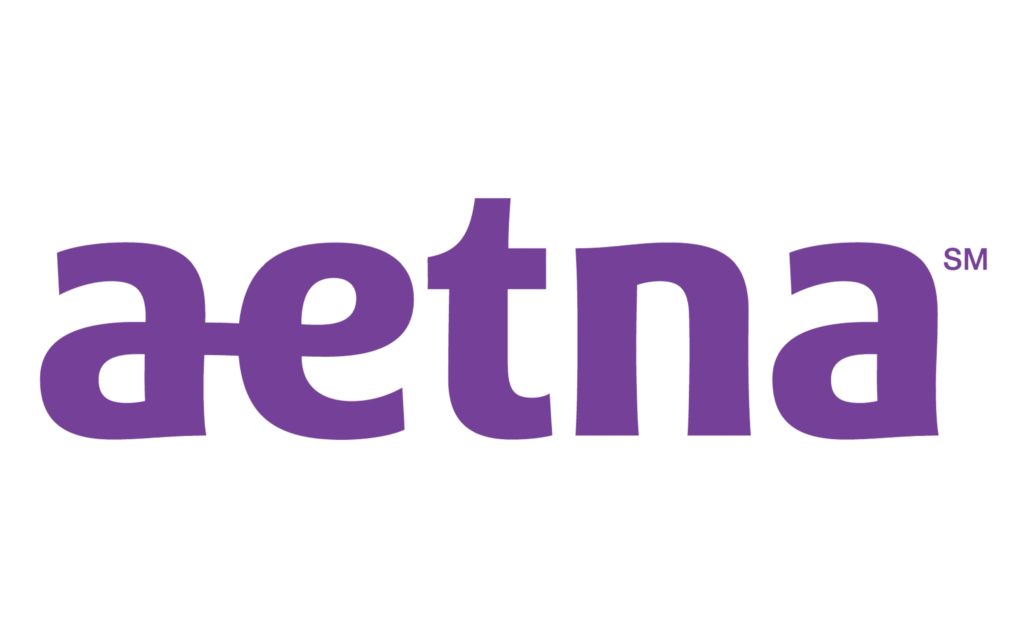Choosing Carolina Recovery Solutions for Alcohol Addiction Treatment
When it comes to seeking alcohol addiction treatment, choosing the right facility is crucial for achieving successful and long-lasting recovery. Carolina Recovery Solutions in Asheville, NC offers a comprehensive range of services and evidence-based treatment approaches that make it an excellent choice for individuals seeking treatment for alcohol addiction.
Why Carolina Recovery Solutions?
Carolina Recovery Solutions stands out as a premier treatment center for alcohol addiction. Here are a few reasons why individuals choose Carolina Recovery Solutions:
- Expertise and Compassionate Care: The team at Carolina Recovery Solutions consists of highly trained professionals who are experienced in treating alcohol addiction. They provide compassionate care, understanding the unique challenges faced by individuals struggling with alcohol use disorder.
- Individualized Treatment Plans: Carolina Recovery Solutions recognizes that each person’s journey towards recovery is unique. They create individualized treatment plans tailored to meet the specific needs of each client, ensuring a personalized approach to recovery.
- Beautiful Location: Located in Asheville, NC, Carolina Recovery Solutions offers a serene and picturesque setting for individuals seeking treatment. The peaceful environment fosters healing and provides a supportive backdrop for the recovery process.
Comprehensive Range of Services
Carolina Recovery Solutions offers a comprehensive range of services to address the various aspects of alcohol addiction. These services include:
- Medical Detoxification: Carolina Recovery Solutions provides medically supervised detoxification, ensuring the safety and comfort of clients during the withdrawal process.
- Individual Therapy: Individual therapy sessions allow clients to work one-on-one with a therapist to explore underlying issues, develop coping strategies, and create a personalized plan for recovery.
- Group Therapy: Group therapy sessions provide a supportive environment where individuals can connect with peers, share experiences, and learn from one another’s journeys.
- Family Involvement: Carolina Recovery Solutions recognizes the importance of family support in the recovery process. They offer family therapy sessions to help repair relationships and educate loved ones about alcohol addiction.
Evidence-Based Treatment Approaches
Carolina Recovery Solutions utilizes evidence-based treatment approaches that have been proven effective in helping individuals overcome alcohol addiction. These approaches include:
- Cognitive-Behavioral Therapy (CBT): CBT helps individuals identify and change negative thought patterns and behaviors associated with alcohol addiction. It focuses on developing healthy coping mechanisms and strategies to prevent relapse.
- Motivational Enhancement Therapy (MET): MET is a person-centered therapy that aims to enhance motivation and resolve ambivalence towards recovery. It helps individuals explore their goals, values, and reasons for change.
- Counseling: Counseling plays a crucial role in alcohol addiction treatment. Carolina Recovery Solutions provides counseling services to help clients address emotional, psychological, and relational issues that may contribute to their addiction.
By choosing Carolina Recovery Solutions, individuals can access a comprehensive range of services and evidence-based treatment approaches that are tailored to their needs. With the support of a compassionate team and a personalized treatment plan, individuals can embark on a journey towards lasting recovery from alcohol addiction.
Alcohol Withdrawal and Detoxification
When it comes to treating alcohol addiction, understanding the process of alcohol withdrawal and the importance of medically supervised detoxification is crucial. Carolina Recovery Solutions in Asheville, NC, provides comprehensive alcohol addiction treatment services, including expert guidance through the stages of withdrawal and detoxification.
Understanding Alcohol Withdrawal
Alcohol withdrawal refers to the symptoms that may occur when an individual who has been regularly consuming excessive amounts of alcohol abruptly stops drinking. These symptoms can vary in severity and may include:
- Anxiety
- Shakiness or tremors
- Sweating
- Nausea or vomiting
- Insomnia
- Headache
- Irritability
- Confusion
These symptoms typically manifest within 8 hours after the last drink, but they can also occur days later. They tend to peak within 24 to 72 hours but may persist for weeks.
The Importance of Medically Supervised Detox
For individuals with moderate-to-severe alcohol withdrawal symptoms, it is essential to receive treatment at a hospital or specialized facility that specializes in alcohol withdrawal. In these settings, medical professionals can provide the necessary care and support to manage symptoms and prevent complications (MedlinePlus).
However, for those with mild-to-moderate alcohol withdrawal symptoms, outpatient treatment may be an appropriate option. This typically involves a combination of medications, counseling, and support groups. It is important to note that total and lifelong avoidance of alcohol, known as abstinence, is the most effective treatment for individuals who have experienced alcohol withdrawal.
At Carolina Recovery Solutions, their team of healthcare professionals is experienced in providing personalized and medically supervised detoxification for individuals with alcohol addiction. They understand the complexities of alcohol withdrawal and are equipped to manage the symptoms effectively while ensuring the safety and comfort of their patients.
By choosing Carolina Recovery Solutions for alcohol addiction treatment, individuals can rest assured that they will receive the necessary support and care during the crucial phase of alcohol withdrawal and detoxification. The dedicated team will work closely with each patient to create a customized treatment plan that addresses their unique needs, ensuring a safe and successful transition towards long-term recovery.
Medications for Alcohol Addiction Treatment
When it comes to alcohol addiction treatment, medications can play a crucial role in supporting individuals on their journey to recovery. Carolina Recovery Solutions offers a range of evidence-based treatment approaches, including the use of FDA-approved medications tailored to meet the unique needs of each individual.
FDA-Approved Medications
There are three FDA-approved medications commonly used in alcohol addiction treatment: disulfiram, naltrexone, and acamprosate. These medications have demonstrated effectiveness in helping individuals reduce cravings, alleviate withdrawal symptoms, and discourage relapse.
| Medication | Purpose |
|---|---|
| Disulfiram | Acts as a deterrent by causing unpleasant side effects, such as nausea and vomiting, when alcohol is consumed. This helps individuals maintain sobriety. |
| Naltrexone | Blocks the pleasurable effects of alcohol, reducing its appeal and decreasing the likelihood of relapse. It can be taken in the form of a daily pill or a monthly injection. |
| Acamprosate | Helps normalize brain activity disrupted by alcohol addiction, reducing cravings. It is typically taken three times a day (WebMD). |
How Medications Help in Recovery
Medications for alcohol addiction treatment work in different ways to support the recovery process. Disulfiram acts as a deterrent, creating an aversive reaction when alcohol is consumed. Naltrexone blocks the pleasurable effects of alcohol, reducing the desire to drink. Acamprosate helps to restore balance in brain chemistry disrupted by alcohol addiction, reducing cravings.
It’s important to note that individual responses to these medications can vary. What works for one person may not be as effective for another. Therefore, it is crucial to work closely with healthcare professionals at Carolina Recovery Solutions to determine the most suitable medication and dosage for each individual’s specific needs.
Potential Side Effects of Medications
Like any medication, those used in alcohol addiction treatment may have potential side effects. It’s important to consult with a healthcare professional to discuss the benefits and risks of each medication. Some common side effects associated with these medications include:
- Disulfiram: Nausea, vomiting, headache, drowsiness, and metallic taste in the mouth.
- Naltrexone: Nausea, headache, dizziness, and fatigue.
- Acamprosate: Diarrhea, nausea, stomach pain, and muscle weakness.
It’s important to discuss any concerns or potential side effects with a healthcare professional. They can provide guidance and support to help individuals navigate through their medication journey during alcohol addiction treatment.
At Carolina Recovery Solutions, the use of medications as part of a comprehensive treatment plan is carefully evaluated and tailored to the unique needs of each individual. Combined with evidence-based behavioral therapies, these medications can significantly enhance the chances of successful recovery and long-term sobriety.
Behavioral Therapies for Alcohol Addiction
When it comes to alcohol addiction treatment, behavioral therapies play a crucial role in helping individuals address the underlying causes of their addiction and develop effective coping strategies. Carolina Recovery Solutions in Asheville, NC utilizes evidence-based behavioral therapies to support individuals on their journey to recovery. Two commonly used therapies are Cognitive-Behavioral Therapy (CBT) and Motivational Enhancement Therapy (MET). Additionally, counseling plays a vital role in the overall recovery process.
Cognitive-Behavioral Therapy (CBT)
Cognitive-Behavioral Therapy (CBT) is a widely recognized and effective treatment approach for alcohol addiction. This therapy focuses on identifying and changing negative thought patterns and behaviors that contribute to alcohol use. CBT helps individuals develop healthier coping mechanisms and strategies to manage cravings and triggers.
In CBT sessions, individuals work with a therapist to challenge and reframe negative thoughts and beliefs related to alcohol use. They learn practical skills to resist urges, manage stress, and improve problem-solving abilities. By addressing the underlying causes of addiction, CBT helps individuals develop long-term strategies for maintaining sobriety.
Motivational Enhancement Therapy (MET)
Motivational Enhancement Therapy (MET) is another effective behavioral therapy used in alcohol addiction treatment. MET is designed to increase individuals’ motivation and commitment to change their drinking behavior. It focuses on exploring and resolving ambivalence about quitting alcohol, setting goals, and enhancing self-efficacy.
During MET sessions, therapists use motivational interviewing techniques to help individuals identify their personal values and goals. They work collaboratively to address any barriers to change and enhance individuals’ motivation to make positive changes. MET empowers individuals to take ownership of their recovery journey and build confidence in their ability to overcome challenges.
The Role of Counseling in Recovery
In addition to CBT and MET, counseling plays a vital role in alcohol addiction recovery. Counseling provides individuals with a safe and supportive environment to explore their thoughts, feelings, and behaviors related to alcohol use. It helps individuals gain insight into the root causes of their addiction and develop strategies for long-term recovery.
Counseling sessions may involve individual therapy, group therapy, or a combination of both. Individual therapy allows for personalized attention and tailored treatment plans, while group therapy provides a sense of community and shared experiences. Support groups, such as Alcoholics Anonymous (AA), can also be a valuable resource for ongoing support and fellowship (Alcohol.org).
By utilizing evidence-based behavioral therapies like CBT and MET, along with counseling, Carolina Recovery Solutions aims to address the multifaceted aspects of alcohol addiction. These therapies help individuals build resilience, gain insight, and develop the necessary skills for long-term recovery.
Continuing Care and Long-Term Recovery
When it comes to alcohol addiction treatment, continuing care plays a crucial role in ensuring long-term recovery. It is considered an important component of effective treatment for substance use disorder, especially for individuals with greater problem severity. In this section, we will explore the importance of continuing care, different approaches to continuing care, and the effectiveness of telephone-based continuing care.
The Importance of Continuing Care
Continuing care is designed to solidify and sustain the treatment gains achieved during the initial intensive phase of addiction treatment. It aims to establish abstinence, prevent relapse, and manage patients over extended periods (NCBI). Research has shown that longer durations of continuing care and active efforts to keep patients engaged can lead to more consistently positive results. Patients at higher risk for relapse may particularly benefit from continuing care.
Different Approaches to Continuing Care
There are various approaches to continuing care, depending on the individual’s needs and preferences. Some common approaches include:
- Outpatient Programs: These programs provide ongoing support and therapy on an outpatient basis, allowing individuals to receive treatment while maintaining their daily routines.
- Support Groups: Support groups such as Alcoholics Anonymous (AA) and SMART Recovery offer a supportive community of individuals who are also in recovery, providing a space for sharing experiences and gaining guidance.
- Individual Counseling: Individual counseling allows individuals to work one-on-one with a therapist or counselor to address specific challenges and develop coping strategies.
- Case Management: Case management involves ongoing support from a professional who helps coordinate various aspects of the individual’s recovery journey, such as accessing resources and managing appointments.
Telephone-Based Continuing Care
Telephone-based continuing care is an effective approach for individuals with alcohol use disorder. It has consistently shown to improve outcomes, including reducing the risk of relapse and criminal convictions in the years following treatment. This form of continuing care provides ongoing support through regular phone check-ins with a counselor or therapist.
Telephone-based continuing care offers several advantages, including convenience, accessibility, and cost-effectiveness. It allows individuals to receive support from the comfort of their own homes and eliminates the need for in-person appointments, making it an attractive option for those with busy schedules or limited transportation.
By utilizing telephone-based continuing care, individuals can receive ongoing guidance, encouragement, and accountability on their recovery journey. This approach complements other forms of continuing care and can be particularly beneficial for individuals with alcohol use disorder.
By focusing on the importance of continuing care, exploring different approaches, and considering the effectiveness of telephone-based continuing care, individuals can enhance their chances of long-term recovery from alcohol addiction. It’s important to work with a reputable addiction treatment facility like Carolina Recovery Solutions in Asheville, NC, to ensure access to comprehensive continuing care services tailored to individual needs.
Individualized Treatment for Alcohol Addiction
At Carolina Recovery Solutions, the approach to alcohol addiction treatment is centered around the concept of individualization. Recognizing that each person’s journey with addiction is unique, the team at Carolina Recovery Solutions is committed to tailoring treatment to meet the specific needs of each individual. This individualized approach ensures that every aspect of the treatment plan is designed to maximize effectiveness and promote long-term recovery.
Tailoring Treatment to Your Needs
Treatment for alcohol addiction should be personalized and tailored to the individual’s specific needs. Research has shown that individualized treatment plans are more effective in supporting recovery. At Carolina Recovery Solutions, the experienced professionals work closely with each patient to develop a treatment plan that addresses their unique circumstances, challenges, and goals. Factors such as the severity of the addiction, co-occurring mental health disorders, and personal preferences are taken into account to create a customized roadmap for recovery.
Custom Care Teams
To provide the highest level of care, Carolina Recovery Solutions assembles custom care teams for each individual seeking treatment for alcohol addiction. These care teams consist of professionals from various disciplines, including medical doctors, therapists, counselors, and support staff. By bringing together a diverse team of experts, Carolina Recovery Solutions ensures that each patient receives personalized attention and comprehensive care throughout their recovery journey. This collaborative approach allows for a multidimensional treatment plan that addresses not only the physical aspects of addiction but also the emotional, psychological, and social aspects.
Ongoing Monitoring and Support
Recovery from alcohol addiction is not a one-time event but rather an ongoing process. At Carolina Recovery Solutions, ongoing monitoring and support are considered vital components of alcohol addiction treatment. Research has shown that continued support and accountability significantly contribute to long-term recovery. To support patients in maintaining sobriety and preventing relapse, Carolina Recovery Solutions offers various forms of ongoing support, including individual therapy sessions, group therapy, support groups, and educational programs. This ongoing monitoring and support ensure that patients have the necessary tools and resources to navigate the challenges they may face in their recovery journey.
By focusing on individualized treatment, custom care teams, and ongoing monitoring and support, Carolina Recovery Solutions strives to provide a comprehensive and tailored approach to alcohol addiction treatment. This commitment to personalization sets the foundation for successful recovery and empowers individuals to reclaim their lives from the grip of addiction.
Alcohol Addiction Treatment FAQ's
Is medically supervised detoxification necessary for everyone in the Alcohol Addiction Treatment program?
Medically supervised detoxification is recommended for individuals with severe alcohol dependence to ensure a safe and comfortable transition. However, the necessity varies based on individual circumstances.
What types of therapies are included in the Alcohol Addiction Treatment program?
Our program includes a variety of therapies, such as cognitive-behavioral therapy, motivational enhancement therapy, and holistic approaches like mindfulness practices and expressive arts therapy.
How long does the Alcohol Addiction Treatment program typically last?
The duration of the program varies based on individual progress and the level of care needed. Our team collaborates with clients to determine the appropriate length of treatment.
Is family involvement encouraged in the Alcohol Addiction Treatment?
Yes, family involvement is encouraged and supported through educational sessions and family therapy. We recognize the importance of a supportive family environment in the recovery process.
What ongoing support is provided after completing the Alcohol Addiction Treatment program?
After completing the program, individuals transition to aftercare support, which may include continued counseling, support groups, and resources to assist in maintaining long-term recovery.







